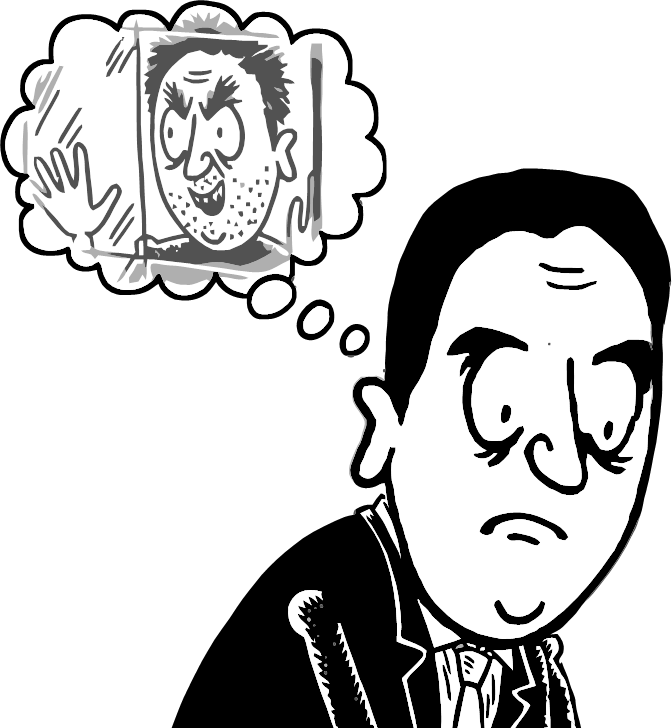Recent political controversies around politicians owning rental properties have reminded us of the negative perceptions around landlords that exist for some sections of the public. This should come as no surprise, as landlords have spoken for some time about what they perceive as hostility in how they are viewed by the public and even in media coverage. Whether or not we agree that such perceptions are justified, understanding what lies behind them can tell us a lot about the politics of housing in this country, past and present.
Of course, there is perhaps no other country which such an illustrious history of anti-landlord sentiment. The Land Wars of the 1870 and 1880s, in which Irish tenant farmers railed against unfair rents and evictions, played a central role in Irish political history and the drive for national independence. Inspired by the Land Wars, efforts to redistribute land and to spread property ownership were fundamental to policy and politics in the Free State, and indeed for much of the 20th century, as argued by Michelle Norris in her book Property, Family and the Irish Welfare State.
Less familiar, however, is the fact that the anti-landlord sentiment of 19th century Irish peasants was also expressed by the finest economic minds of that period. Virtually all of the greatest economic thinkers of the time identified landlordism among the greatest of economic evils. David Ricardo, often seen as the founding father of economics, argued that the interests of landlords were always opposed to those of every other part of society. John Stuart Mill, perhaps the most influential liberal thinker of all time, famously wrote that landlords 'grow rich in their sleep' without ‘working, risking or economizing’, in other words without contributing to society.
For the classical economists, profit is derived from investing in the production of goods and services. It generates employment, creates new products that satisfy needs of consumers, and therefore expands prosperity. Charging rent for land, in contrast, does not involve the production of any good or service, nor does it generate employment. It simply allows the owner of a piece of naturally occurring land to acquire money generated by the labour or investment of someone else. In other words, rent does not create wealth, it just distributes it from workers and businesses to landowners.
The economic critique of landlordism was best expressed by US economist and journalist Henry George. George was one of the most influential thinkers of the late-19th and early-20th century. It is said that his magnum opus, Progress and Poverty, sold more copies in its day than any other book except the Bible. An estimated 200,000 people attended his funeral in New York. To this day, it is thought to be the second largest funeral in US history.
George popularised the idea that rent was fundamentally unfair and did not contribute to the economy. He also pointed out that land owners can benefit from economic growth without actually contributing themselves. ‘As a landowner’, he wrote, ‘you may sit down and smoke your pipe... and without doing a stroke of work, without adding one iota to the wealth of the community, in ten years you will be rich.’ In essence, this remains the case today. If the Government extends the Luas line, for example, the immediate economic benefit often takes the effect of increased land prices, which many consider an unearned windfall gain for the owner.
Henry George’s life as a political activist symbolises how Irish historical antipathy to landlordism dovetails with a long-standing critique founded in liberal economics. Michael Davitt, the leader of the Land Wars, met George in New York in 1880 and became an enthusiastic Georgist. Indeed, George went on to write a book entitled The Irish Land Question, in which he argued that the Irish Land Wars were ‘not a mere local matter between Irish landlords and Irish tenants, but the great social problem of modern civilization’.
George also travelled to Ireland during the Land War in 1881/82 and even got himself arrested by the British. In a letter, he noted that: ‘The charge against me was being a stranger and a dangerous character who had conspired with certain other persons to prevent the payment of rent’. While all of this relates to historical land ownership, as opposed to contemporary housing, it indicates how deeply, both historically and intellectually, negative perceptions of landlordism and rent run. But there are also important reasons why landlordism in the case of housing is the subject of negativity today.
First of all, the decline of homeownership has brought about concentration of the ownership of residential property. Dara Turnbull, Research Coordinator at Housing Europe, notes that in the 1990s the age at which the majority of households were homeowners was 26, today it is 35. Likewise, in the 1990s just 15% of households aged between 25 and 34 were in the private rental sector, compared with 51% today. This is not just an Irish phenomenon; it is paralleled across many countries including the UK, Spain, the US, Australia and New Zealand.
Simply put, the stock of housing is in fewer hands today than at any time in the last few decades. This has created a new inequality of housing. Furthermore, inequality of housing further entrenches other forms of inequality. For example, as demonstrated in international research, older and more economically well off households are much more likely to be landlords, while younger, working class and migrant households are much more likely to be renters.
Combine all of this with very high increases in property prices over the last decade or so, and we can see how the division between the ‘housing haves’ and the housing ‘have nots’ has become a major fault line in our society.
Second of all, homeownership has long been at the heart of Irish culture and society, and therefore being unable to access homeownership can be experienced as being excluded from fully taking part in social and community life, for example ‘putting down roots’ or creating a ‘family home’. We know from several pieces of Irish research that homeownership remains the preferred tenure for a large majority of private renters. Tenants can feel ‘trapped’ in the private rental sector, and that they cannot move forward with their lives or plan for their future until they are in a position to buy a home – something which high rents and high house prices push further and further beyond the reach of many renters.
It’s easy to see how a combination of the above two factors could lead to widespread anger among ‘generation rent’, a sense of being locked out of homeownership and a growing economic and cultural divide between owners and renters.
But there is a third, and final, reason that sheds light one widespread negative perceptions towards landlordism, one which is specific to our times but also to the type of rental sector we have in Ireland. Private rental housing creates a power relationship between landlord and tenant. The landlord can dictate aspects of a tenant’s life and exercise control over whether or not a tenant can continue to access their home.
We see this power relation in many aspects of everyday life in the rental sector. Recently, a colleague of mine told me she needed to find another house because her daughter desperately wanted a pet, which her current landlord would not allow (something identified in the international literature, and addressed in recent legislation in England). Research I conducted with Juliana Sassi of Maynooth University in 2021 found that tenants feel deeply frustrated about the inability to paint their dwellings, put up pictures or shelving, or make other alterations to create a feeling of ‘home’.
The power relation between landlord and tenant is, however, most evident in the case of eviction. A tenant may feel that they have a stake in the home they have created in a given property, but that this is rendered meaningless by the power to evict which is conferred on the landlord, in certain circumstances, under Irish rental policy.
Whether or not we agree or disagree with this kind of rental policy, the point is that it creates a feeling of powerlessness among tenants, a sense of lacking control over that which is most fundamental to their lives: their home.
All of the factors discussed so far come together to influence contemporary perceptions of landlordism. There is a sense, deeply rooted in history and economic theory, that ‘rent’ is fundamentally unfair. Today this has been combined with a rapid concentration of property ownership, creating a new social fault line between ‘housing have’ and ‘housing have nots’, and a pervasive sense of powerlessness and frustration among tenants. With all this at play, we should expect social attitudes around housing to become increasingly contentious and politically polarised.







